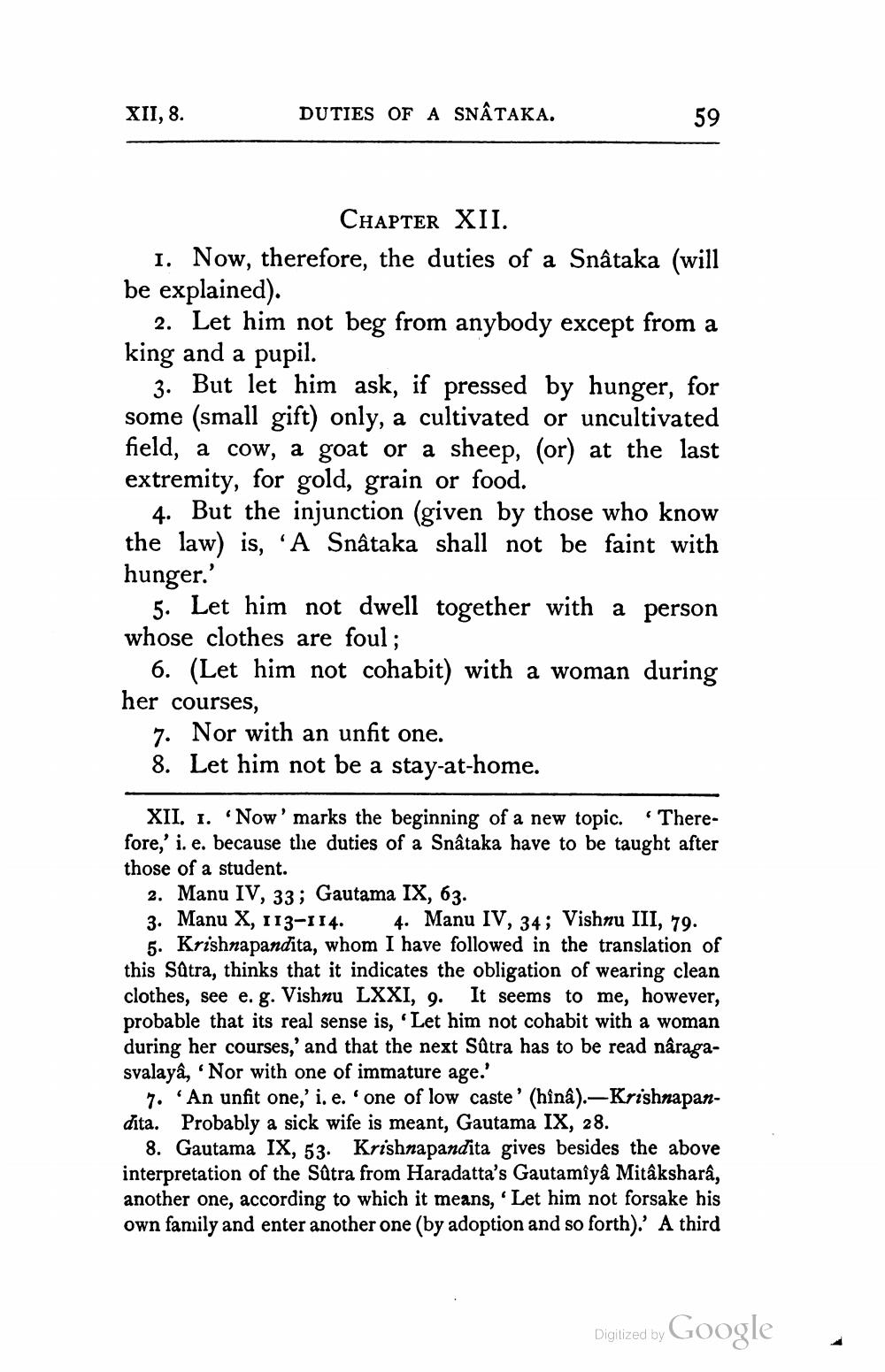________________
XII, 8.
DUTIES OF A SNÂTAKA.
59
CHAPTER XII. 1. Now, therefore, the duties of a Snâtaka (will be explained).
2. Let him not beg from anybody except from a king and a pupil.
3. But let him ask, if pressed by hunger, for some (small gift) only, a cultivated or uncultivated field, a cow, a goat or a sheep, (or) at the last extremity, for gold, grain or food.
4. But the injunction (given by those who know the law) is, 'A Snâtaka shall not be faint with hunger.'
5. Let him not dwell together with a person whose clothes are foul;
6. (Let him not cohabit) with a woman during her courses,
7. Nor with an unfit one. 8. Let him not be a stay-at-home.
XII. 1. Now' marks the beginning of a new topic. Therefore,' i.e. because the duties of a Snataka have to be taught after those of a student.
2. Manu IV, 33; Gautama IX, 63. 3. Manu X, 113-114. 4. Manu IV, 34; Vishnu III, 79.
5. Krishnapandita, whom I have followed in the translation of this Sūtra, thinks that it indicates the obligation of wearing clean clothes, see e. g. Vishnu LXXI, 9. It seems to me, however, probable that its real sense is, 'Let him not cohabit with a woman during her courses,' and that the next Sûtra has to be read näragasvalayâ, Nor with one of immature age.'
7. An unfit one,' i. e. one of low caste' (hîna).—Krishnapandita. Probably a sick wife is meant, Gautama IX, 28.
8. Gautama IX, 53. Krishnapandita gives besides the above interpretation of the Sutra from Haradatta's Gautamiya Mitakshara, another one, according to which it means, 'Let him not forsake his own family and enter another one (by adoption and so forth).' A third
Digitized by Google




